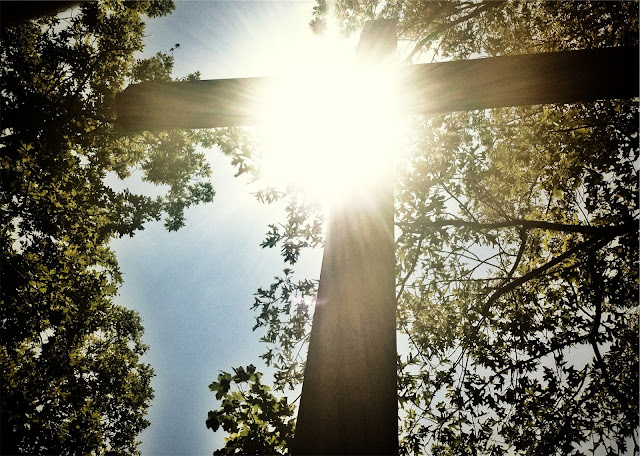On Daily Communion (Part 2): A Daily Gospel Call
Click here for Part 1.
The gospel isn’t just for evangelism. Christians need the gospel too. And we need it each and every day. For the gospel isn’t just the way into the Christian life; it’s the foundation for every step of the Christian walk. Jerry Bridges has written of how Christians need to preach the gospel to themselves, which, he explains, ‘means that you continually face up to your own sinfulness and then flee to Jesus through faith in His shed blood and righteous life’ (Jerry Bridges, The Discipline of Grace, 58). And one of the ways we can do that is by coming to the Lord’s Table, where we examine ourselves, confess our sins, and rejoice with thanksgiving in the One who has saved us by His righteous life and shed blood in our place.
Every time we come to the Breaking of Bread, we come ‘in remembrance’ of Christ (1 Cor. 11:24-25). Every time we partake of the Lord’s Supper, we ‘proclaim the Lord’s death till He comes’ (1 Cor. 11:26). So, at the sacrament, our attention is turned to Jesus and His saving work for us. At the Lord’s Table we remember ‘Jesus Christ, the Son of God’ who is Himself ‘the gospel’ – the good news (Mark 1:1)! In the Supper we proclaim Christ’s death, through which He has brought us ‘redemption through His blood, the forgiveness of sins’ (Eph. 1:7; Col. 1:14).
We can’t truly have a Breaking of Bread without hearing the gospel: without hearing who Jesus is and what He has done for us and for our salvation. And so, every time we come to the Lord’s Table, we receive a gospel call to come to Jesus and taste afresh the joy and peace of full salvation in Him.
As we proclaim the Lord’s death at His Table, we acknowledge our dependence upon Him and what He’s done for us, and our confidence in the Lamb who was slain for us and now lives. And so the Lord’s Table truly is a Eucharist – a Thanksgiving – because as we look to Christ and His Cross, how can we help but be filled with thankfulness for our Saviour and His atoning work!
But as we proclaim the Lords’ death and remember Him, we also encounter the crucified and risen Saviour in His gracious and loving power. As Matthew Henry puts it:
We do this in remembrance of Christ effectually, when we experience the death of Christ killing sin in us, mortifying the flesh, weaning us from this present life, weakening vicious habits and dispositions in us … when, in ‘touching the hem of His garment,’ we find, like that good woman, virtue comes out of Him to heal our souls. (Matthew Henry, The Communicant’s Companion, 52)The proclamation of Christ’s death is not powerless. We’re not remembering a dead historical figure, but a risen and living Lord. And that living Lord is the one who unites us to Himself in His death and resurrection, that we might die to sin and live to righteousness. As John Wesley put it, ‘the grace of God given herein confirms to us the pardon of our sins by enabling us to leave them.’ (Wesley, The Duty of Constant Communion).
The Lord’s Table calls us to confess our sins and receive Christ’s forgiveness. But Christ’s forgiving power is also transforming power. Jesus doesn’t hand out a bit of forgiveness here and a dash of transformation over there. No. He gives us Himself. And in Him we find true forgiveness which transforms. For Jesus Himself is our both our righteousness and our holiness – our justification and our sanctification.
The Breaking of Bread as the holy of holies of Christian worship shows us over and over again that, ultimately, Christianity isn’t about us and what we’re doing for God, but about Jesus and what He has done for us. The more often we come to His Table, the more often we see that we come to our God only with empty hands, stretched out to receive His grace and mercy in Jesus, through His death in our place on the Cross.
As we often sing, we are ‘prone to wander … prone to leave the God [we] love.’ Our attention is grasped by so many things which distract us from the beauty of Christ and the glory of His sacrifice for us. So each and every day we need the gospel, calling us back to Jesus, fixing our eyes on our Saviour, causing us to look away from our own works to His work. And so coming to this Gospel feast set out for us at the Lord’s Supper as often as we can, whether that’s every day (like in the college chapel) or every Lord’s Day (like in most Pentecostal churches), continually preaches this good news to us .
...
Subsequent Posts in the series:
Part 3: Why Wouldn't You Want to Encounter Jesus Every Day?
